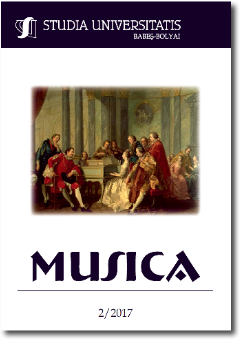THE SIGNIFICANCE OF EIN FESTE BURG IST UNSER GOTT IN MUSIC LITERATURE
THE SIGNIFICANCE OF EIN FESTE BURG IST UNSER GOTT IN MUSIC LITERATURE
Author(s): Éva PéterSubject(s): Fine Arts / Performing Arts
Published by: Studia Universitatis Babes-Bolyai
Keywords: The Reformation; liturgical tradition; vernacular hymns; the Protestant chorale; artistic adaptations.
Summary/Abstract: Luther was a prophetic personality, meaning he was first and foremost a preacher. He viewed also singing rather as a practical form of preaching. He considered that the liturgical tradition and liturgical order of the Middle Ages was correct and worthy to be kept. He intended merely to remove from it some pieces and texts that were not in accordance with the Gospel. He made preaching in the vernacular languages a compulsory and crucial element of the worship. Due to his reform the congregation became an active participant to the worship by responding in his vernacular language, by singing and praying to the word that was preached. Seeing that there was a lack in proper hymns, Luther undertook himself the tasks of composing hymns. He was mainly the lyricist, but he took part also in the reformation of the tunes adapted from the Middle Age melodies. Luther’s hymn entitled A Mighty Fortress Is Our God is known worldwide and it is a paraphrase of Psalm 46. There are numerous artistic adaptations to this popular tune. In the following I will present some of these.
Journal: Studia Universitatis Babes-Bolyai - Musica
- Issue Year: 62/2017
- Issue No: 2
- Page Range: 153-164
- Page Count: 12
- Language: English

